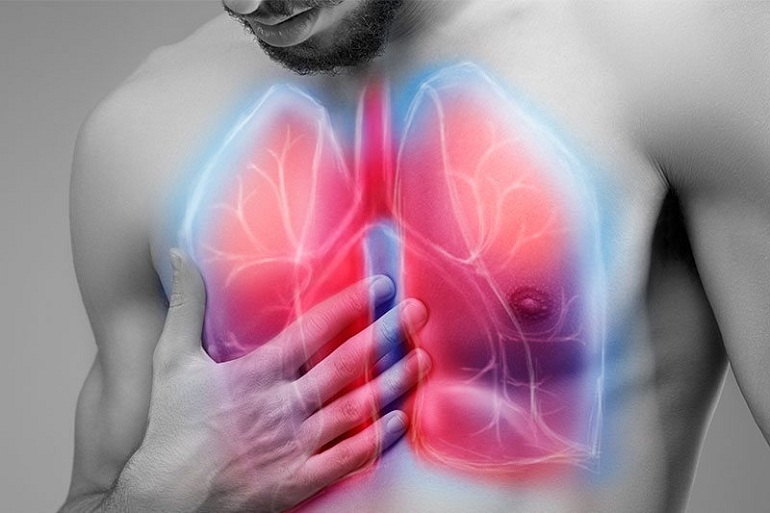Acute Pneumonia
Pneumonia is a condition affecting the lungs and in this infection inflammation of lung tissue occurs. Acute Aspiration pneumonia may be caused by the pneumococcus bacteria and these may be found in the bronchial secretions of the lung that is affected. Pneumonia most frequently affects the lower lobes or the base in the lungs and in many cases the right lung is affected by this condition.
This condition may affect a single or both the lungs in individuals. The basic symptoms associated with pneumonia include fever, disturbed respiration, chest pain, and cough. Sputum in pneumonia may be brownish, yellowish or greenish in color. Physical examination of this condition can help physicians diagnose cases of acute pneumonia.
Read Also Attitude status about life in Hindi on 99status.

In acute pneumonia, certain complications may be observed and these include pleurisy. In this, the two pleura layers covering the lung and inner wall of the chest are affected by the accumulation of fluid in the space within these two layers. This complication is also referred to as pleuritis and causes sharp chest pain along with chest tenderness, shortness of breath and cough.
Another complication in acute pneumonia includes pericarditis which refers to inflammation of the tissue layers that surround the heart. Endocarditis may also be one of the possible complications and it causes inflammation of the heart’s inner lining and the valves. These complications can occur due to septic poisoning. One of the most serious complications in this condition includes meningitis and this causes a large number of fatalities.
You may love to read status in the Punjabi language on pclearnings site
The acute pneumonia treatment plan includes a number of aspects including general hygienic treatment along with treatment of the specific symptoms. The treatment plan may also include administrating vaccines to individuals. It is important for patients suffering from this condition to get complete rest along with plenty of fresh air. A healthy diet plan should also be followed.
Aspiration pneumonia

Aspiration pneumonia is also called anaerobic pneumonia or necrotizing pneumonia. This condition causes inflammation in the lungs along with the bronchial tubes. Such an inflammation is caused when a person breathes in foreign material. The foreign material may include food, liquids, mouth secretions and even vomit.
In Aspiration pneumonia, the inhaling of the foreign material may lead to the collection of pus within the lungs. In many cases, the aspiration of any foreign material within the lungs can occur due to some disorders affecting the normal swallowing function. Esophageal disorders such as gastroesophageal reflux and esophageal stricture can also cause such a condition.
An absent or reduced gag reflex among people who are semi-conscious or not alert can also result in this condition. Other problems causing aspiration pneumonia include old age, anesthesia, dental problems, excessive use of alcohol and even coma. The higher the acidity of the material breathed within the lungs the greater or more severe is the lung injury.
The symptoms associated with Aspiration pneumonia include fever, fatigue along with a cough. A cough may include foul smelling sputum or the sputum may also contain blood or pus. In some cases, greenish sputum may also be observed. Chest pain and shortness of breath are also experienced in many cases. There may be a bluish discoloration of skin among patients as a result of low oxygen.
In many patients, the rapid pulse may also be observed along with wheezing. Other symptoms associated with aspiration pneumonia include excessive sweating, breath odor and difficulty in swallowing. A physical examination may uncover crackling sounds within the lungs. Some tests that can help in diagnosing this condition include a chest x-ray, blood culture, sputum culture, CBC, Bronchoscopy along with a chest CT scan.
Treatment of Aspiration pneumonia depends on the extent and severity of this condition. Antibiotics may be given to treat this condition. Some patients may need hospitalization. The swallowing function of the patients may need to be assessed. The outcome of the treatment depends on the severity and the kind of organism along with the degree of lung involvement. Possible complications that can occur in this condition include spreading of the infection in the bloodstream, low blood pressure, respiratory distress syndrome, and shock.



